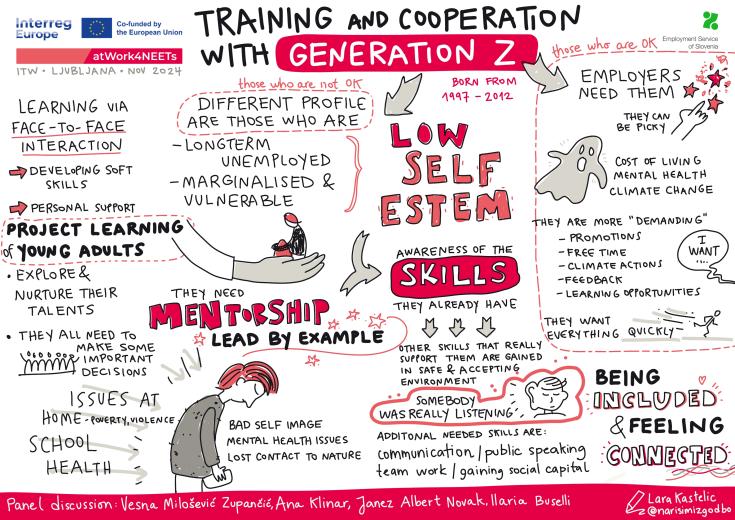Tailored Support for NEETs: Addressing Diverse Needs
In recent years, the issue of young people not in employment, education, or training (NEETs) has garnered significant attention across Europe due to long-term economic impact and a wide range of harmful social conditions. According to Eurostat in 2023, the NEET rate in the European Union stood at 11.2 %, with notable disparities among member states. For instance, countries like Greece, Italy, and Romania reported NEET rates exceeding 16 %, while member states such as the Netherlands, Sweden, and Malta have maintained NEET rates below 7%.
The NEET population is highly diverse, encompassing individuals with varying backgrounds and needs, thus presenting a complex challenge for the development of effective policy measures. A one-size-fits-all approach often falls short at addressing the unique barriers different subgroups face within this population. Many young people in this group encounter multiple obstacles, such as long-term unemployment, mental health challenges, social exclusion, and health issues. Personalized support is key to addressing these aspects comprehensively.
NEETs are not a homogeneous group; they face different challenges on their path to employment. Seven distinct NEET subgroups have been identified (Eurofond, Exploring the diversity of NEETs from 2016 Exploring the diversity of NEETs | European Foundation for the Improvement of Living and Working Conditions):
- Re-entrants: 12 %
- Short-term unemployed: 21 %
- Long-term unemployed: 12 %
- Unavailable due to illness or disability: 11 %
- Unavailable due to family responsibilities: 19 %
- Discouraged workers: 3 %
- Other inactive 23 %*.
*Updated data for 2022 was presented at the Interregional Thematic Seminar in February 2025 by Massimiliano Mascherini, Head of Social Policies Unit at Eurofound.
Understanding these subgroups allows for tailored interventions and personalized support. That is why the atWork4NEETs project has been focusing on collecting best practices related to personalized support for NEETs. Personalized support refers to measures tailored to each individual, ensuring continuous support and assistance that addresses their specific needs. This approach is based on the belief that each young person’s unique circumstances require customized, tailored strategies, often adopting a holistic perspective that integrates multiple areas of intervention.
It is essential knowing that despite the winds of change, young people’s core needs remained the same. They want to feel safe, accepted, included, heard, and connected. Building relationships and establishing trust — key elements of efficient support — do not happen overnight. Our panel discussions during Interregional Thematic Workshop in November last year highlight the importance of these aspects, reinforcing the need for trust-based, long-term engagement.
During this semester we have collected 16 international good practices on personalized support to NEETs, divided into five sub-categories:
- Work exposure
- Building competencies
- Gaining qualifications/finishing education
- Coaching/mentoring/counselling
- Networking opportunities
Our analysis of these practices highlights the importance of holistically integrating and addressing various domains, enabling effective and comprehensive interventions. A key factor in success lies in the collaboration and networking among institutions and organizations, including public employment services, different ministries, employers, educational institutions, and non-governmental organizations.
By embracing strategies based on personalized support and fostering collaborative networks; organizations and policymakers must work together to better address the diverse needs of NEETs and ensure their successful transition into employment, education, or training.

